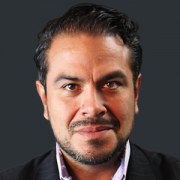Response to COVID-19
Avasant (www.avasant.com) is a leading advisor to global enterprises on their sourcing decisions. Given COVID-19, we see the potential for expanded use of outsourcing for both cost reduction and to accelerate digital transformation. Three of Avasant’s partners offer updates on how clients are responding to COVID-19 related challenges in this presentation in collaboration with Wells Fargo.
Webinar Recap
Avasant thought leaders were invited by Wells Fargo’s IT/BPO group to share expert opinions on how the IT and BPO services sectors are responding to COVID-19 challenges. Anupam Govil, Partner; Carlos Hernandez, Partner; and Akshay Khanna, Partner and Global Lead of Avasant Labs discussed the potential of an expanded use of outsourcing, both for cost reduction and acceleration of digital transformation.
Govil opened the conversation with insights on how market uncertainty is driving an increase in emergency planning, saying the next 30-45 days will be focused on business continuity and risk mitigation. He explained how businesses are directing efforts to allow employees to work remotely, while still ensuring customers are served and that supply chains are remain operational. Govil expects that as critical business operations are stabilized, they’ll move toward aggressive cost and operational recalibration.
Khanna detailed how federal and state governments in India, the Philippines and Eastern Europe are reacting, stating that Indian central government announced a curfew with most states also enforcing a 21-day lockdown. He pointed out that some service provider employees in Eastern Europe have become infected, which has severely impacted companies and resulted in stronger measures to work from home. Large service providers with tens-of-thousands of employees have achieved a 40%-60% remote workforce, with room to increase by another 10%-15%, leaving only 10%-15% required to be onsite.
Hernandez covered the contractual nature of relationships and clients’ ability to be flexible with changes and honor force majeure clauses. With business continuity at the forefront of clients’ objectives, requests for provider contract changes have been less of a priority. However, Hernandez sees these requests picking up in the next 5-9 weeks once leaders have a better understanding of the economic and social effects of the pandemic.
Hernandez and Govil continued by explaining how BPO and IT have both been affected by a reduced onsite workforce. BPO services have been affected more with 50%-70% of work now taking place remotely. Govil pointed out that financial services, healthcare and other industries have very controlled environments due to stricter data privacy regulations, which creates a logistical challenge. Hernandez continued by explaining how contact centers have another challenge due to a lack of bandwidth and a work environment not conducive to remote work due to noise or lack of connectivity.
In regard to new business, Hernandez believes there will be a decline across industries. Manufacturing companies are experiencing lack of demand and changing requirements. As travel limitations slow growth, there will be an increase in the remote workforce, which will change how businesses operate globally. One critical item for the global economy is how to maintain the global supply chain and trade despite travel imitations. Govil states that businesses will not want to onboard new service providers, but there is a likelihood that contracts will be extended for a few months. He goes on to say that, ultimately, once the market stabilizes, there will be a resurgence of demand for services. The two agreed that as a result, there is a heightened need for independent validation and verification of services, especially offshore, as clients are unable to travel for inspections.
With the current enterprise life cycle emphasizing business continuity, companies are now concentrating on cost and operational recalibration and stabilization, says Govil. There will be little demand for offshore services until the crises subsides. With internal layoffs and a lack of the operational strength to scale quickly, in the months following a return to normalcy we will begin to see a trend of companies moving work back to third party service providers.
The group closed out the conversation by exploring how more work is expected to be allowed and operationalized remotely, although more on a contingency basis. They agreed that there is more, not less, work being done globally as clients seek to reduce risk. All three speakers shared the sentiment that a shift toward “insourcing” will be minimal, if at all. As for what the future holds, for many companies the crisis has signaled an imminent need for change, leading to a surge in digital transformation initiatives across industries.
Where
External Professional Conference Call & Live Audio Stream
About Wells Fargo
Wells Fargo Securities is the trade name for the capital markets and investment banking services of Wells Fargo & Company and its subsidiaries, including but not limited to Wells Fargo Securities, LLC, a U.S. broker dealer registered with the U.S. Securities and Exchange Commission and a member of NYSE, FINRA, NFA and SIPC, Wells Fargo Prime Services, LLC, a member of FINRA, NFA and SIPC, Wells Fargo Bank, N.A. and Wells Fargo Securities International Limited, authorized and regulated by the Financial Conduct Authority.





